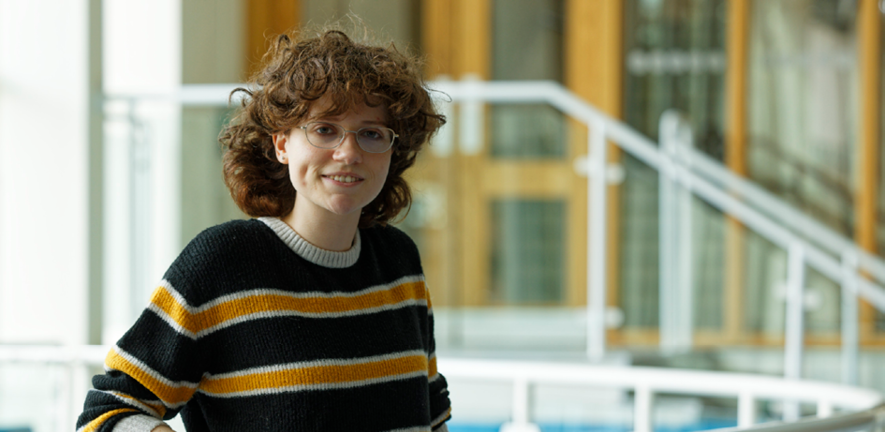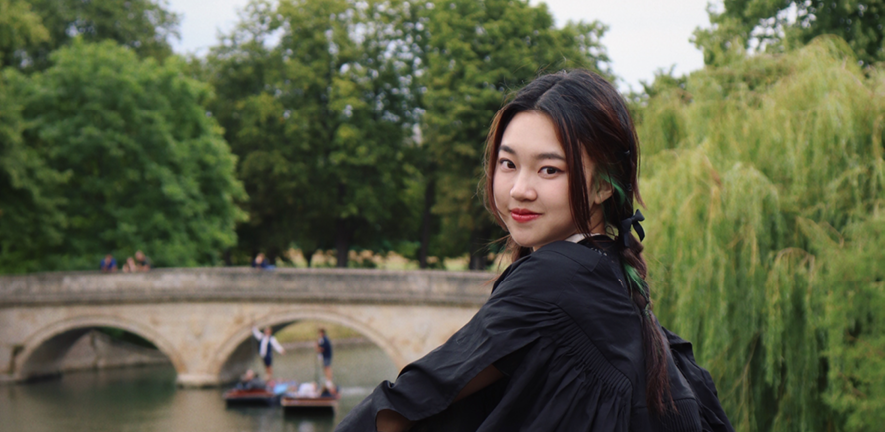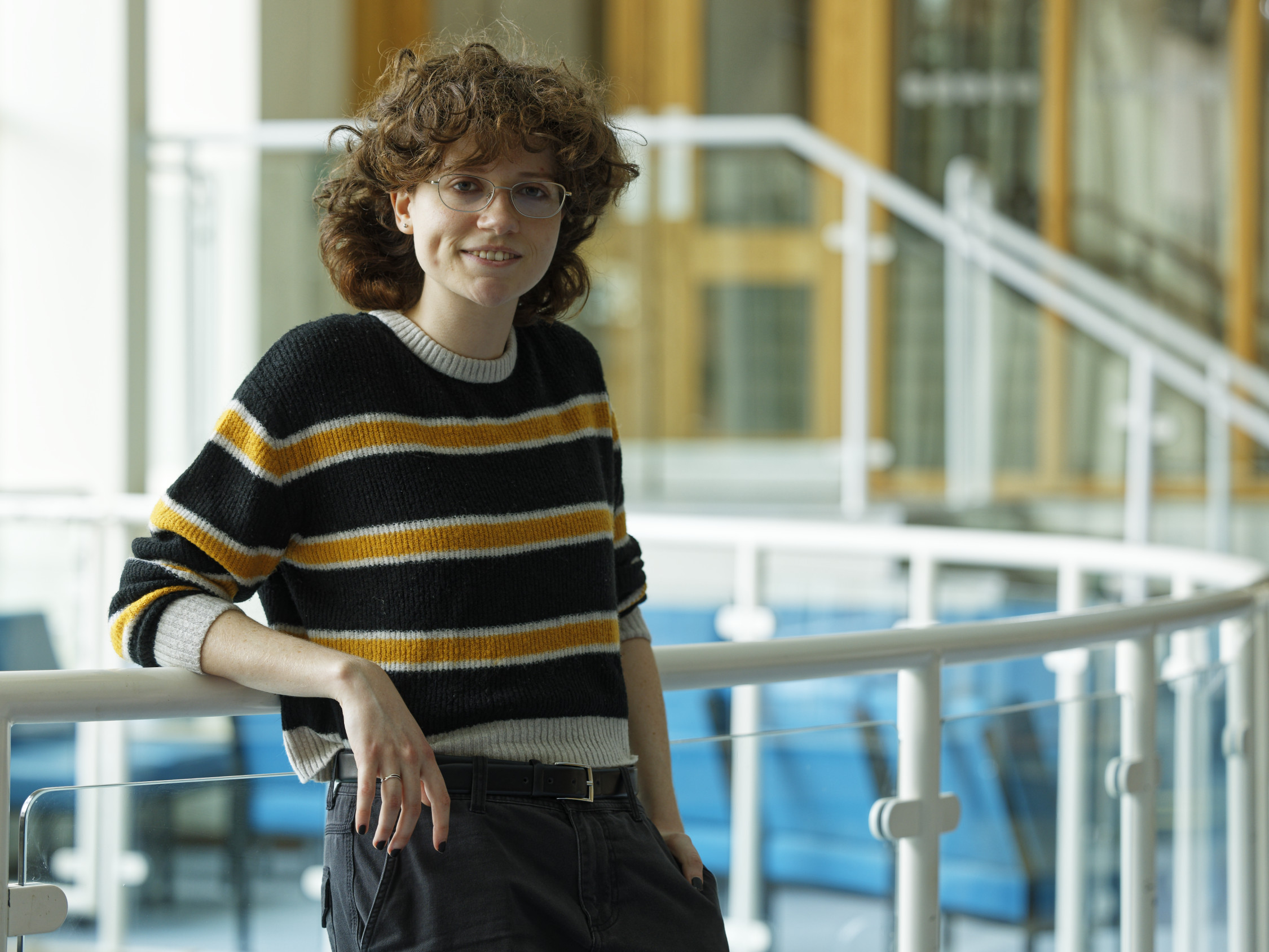
Synthesizing new materials
James Hill
James’ internship was funded by the Chemistry@Cambridge Opportunity Fund, whose main contributors to date are Eddie Powell (Churchill 1967) and Jonathan Goldhill (Darwin 1976).
%2014th%20Mar%202023%20taken%20by%20Michael%20Webb%20%C2%A9University%20of%20Cambridge_C5A3027.jpg)
James Hill, Michael Booth, ©University of Cambridge
After finishing my Part II in Chemistry, I joined Professor Hugo Bronstein’s group for an eight-week summer project synthesising new chiral small molecules and polymers, which involved both organic synthesis and characterisation.
I learned that research, in particular the synthesis component, is very different from what is experienced in teaching labs – in a good way! It is much easier to motivate yourself about the molecules and compounds you are making when there is a larger goal that you are working towards. It also gave me an idea of what it would be like to pursue academia further, and confirmed my intention to do a PhD.
I would like to do research in an area that involves inorganic synthesis and characterisation of new materials that help towards important societal goals, such as improved energy storage, energy generation or utilisation of captured CO2. I’m now doing my Part III in Dr Alex Forse’s research group, working on improving MOF-based supercapacitors.
I would like to say thank you to the donors who made this possible. It was an invaluable experience that confirmed my desire to continue chemistry into the future. These internships are a great idea as the experience they provide is very useful for students in deciding whether research is part of their future career path.
Self-assembled molecular cages
Cheng Qian
Cheng’s internship was also funded by the Opportunity Fund.

Cheng Qian, supplied by Cheng.
Because I matriculated just as the COVID epidemic was starting, I spent much of my undergraduate degree taking Natural Sciences courses online from my home in China. I felt this internship was designed to help students like me who wanted to gain practical experience, but had missed out due to COVID and I eagerly jumped at the opportunity to get hands-on experience in a real lab.
My project was to study self-assembled cages in Professor Jonathan Nitschke’s organic synthesis group. After testing different molecule combinations I was able to get quite a few cages. I learned the steps of a scientific project, new experimental techniques and how to write a formal research proposal. I also learned so much from other group members, which inspired me for my own academic pathway.
This experience opened my mind and helped me to have confidence in my research skills. I have decided to apply to Research Master’s programmes which I would never have done without this internship. I am not sure if I will do a PhD, but for sure I will do something related to inorganic and material chemistry, which I found fascinating.
I would really like to express my deepest appreciation to the donors who helped fund this project. I would not have found my academic interest in supramolecular chemistry and nanoscience without this precious opportunity. I’d also like to express my appreciation to Jonathan and my fantastic supervisor Jieyu, who taught me a lot of techniques starting from zero. Thank you all so much for bringing me the best summer in my undergraduate study.
Developing assays for proteins
Ceinwen Baker
Ceinwen completed her internship in Professor David Klenerman’s group in the Dementia Research Institute at the Cambridge Biomedical Campus. The internship was funded by Wyn Lewis-Bevan (Churchill 1979).
%209th%20Mar%202023%20taken%20by%20Michael%20Webb%20%C2%A9University%20of%20Cambridge_C5A2324.jpg)
Ceinwen Baker, Michael Booth, ©University of Cambridge
While completing my Part II in Chemistry I was very keen to get some lab experience via a summer project, and found this one which had a biochemical focus. The aim of my project was to establish a cellular model for fluorescently tagged FUS expression and to develop a new assay for detecting the FUS protein. FUS is the Fused in Sarcoma protein, which is known to aggregate and be dysfunctional in many cases of Motor Neurone Disease.
In addition to learning a great number of scientific techniques during the eight weeks of my internship, I also learned a lot about how to conduct research. While it wasn’t my primary personal aim for the internship, I also became competent using Python coding for data analysis, which was very rewarding.
I would like to say how grateful I am to Wyn Lewis-Bevan, because without his generosity I couldn’t have afforded to stay in Cambridge while completing a summer project. Because of this I have experience that is helping my current studies, as well as helping to decide my future career plans.
I am now completing my Part III looking into knotted proteins in Professor Sophie Jackson’s lab. My aim is to apply for either a PhD position in pharmaceutical/medicinal chemistry or an industry job in the same realm.
Flattening surfaces for better resolution
Becky Larner
Becky’s internship in Professor Stuart Clarke’s surface science group was also funded by Wyn Lewis-Bevan.

Becky Larner, Nathan Pitt, ©University of Cambridge
I joined Professor Clarke’s group because I’m most interested in physical chemistry. My project was to determine whether the mineral calcite could be flattened sufficiently to be examined using neutron reflectivity, which is a technique where you fire beamed neutrons at your surface to work out thickness of material, density and if a layer is attached. But you must have a really flat sample, with only about five angstroms variation, and calcite can vary by hundreds of angstroms. I spent a lot of time working on the methodology for figuring out how to flatten the surface using atomic force microscopy.
I enjoyed doing proper research in the lab and I would really like to stay in research chemistry. I’m currently doing my Part III in Professor Clare Grey’s group, looking at battery technology and the degradation in sodium cells. It is interesting and I’m learning lots of new techniques.
I’d like to thank Wyn Lewis-Bevan for the funding and the opportunity; I’ve had a great summer and it’s really helped me to focus on what I’d like to do next.
I think these internships are really valuable to the students, you learn so much about the wider world of science. And hopefully I helped the group a little bit!
This article first appeared in Chem@Cam Issue 66. You can find the magazine online here.

